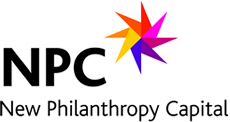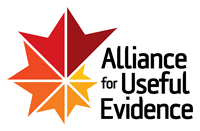These documents explain the relationship between Social Return on Investment (SROI) and 1) Social Accounting and Audit (SAA), 2) GIIRS Ratings & Analytics (“GIIRS” stands for the Global Impact Investing Ratings System) a comprehensive, comparable, and transparent system for assessing the social and environmental impact of companies and funds with a ratings and analytics approach analogous to Morningstar investment rankings, and 3) IRIS (Impact Reporting and Investment Standards) standardized performance indicators to help an organization understand its impact in a credible and comparable way.
This guide written by Alan Kay from the Social Audit Network includes reference to the range of frameworks and methods developed to help organisations explain and account for their performance and impact. It is a “roadmap” to the social accounting and audit process and has been written for social enterprises, social economy organisations and voluntary sector organisations that wish to regularly account and report on their social, economic and environmental performance and impact.
These case studies from Social Audit Network are intended to share experiences between organisations working in the social economy around their social impact reporting, and also to share with local authority commissioning and procurement staff to show them what can be achieved! The case studies are not just about social accounting and audit (SAA), but include where organisations have used SAA as a framework alongside social return on investment (SROI), cost benefit analysis (CBA), and other tools.
‘Exceeding Expectations’ is a report by Kevin Gulliver and Dawn Prentice from Human City institute (HCi) for Trident Social Investment Group on a comprehensive set of social accounts. The report tracks the community impact of Trident using a triangulated approach to evaluation of economic and social value based on HCI’s ‘Measuring-Up’ methodology. It shows how social landlords can measure their wider impact beyond the bottom line. More importantly, the report clearly illustrates how economic and social value can be measured and presented in a highly collaborative way with extensive involvement of stakeholders, including partners and residents. It also represents as case study of a major social landlord group that includes housing associations, charities and social enterprises. The results fed into the development of Trident’s Social Investment Strategy.
This report by John Pearce and Alan Kay for Social Audit Network (SAN) emerged from research whose main purpose has been to explore to what extent social accounting and audit has been used by social economy organisations in the North East of England, Cumbria, Merseyside and Scotland and to understand the perceived barriers to expanding its practice and how it may be made more “do-able” and more robust. The case studies were prepared by organisations that have engaged with social accounting and audit, and want to share their experiences with others.
More than 6400 publications have now been selected by TSRC for inclusion in the Third Sector Knowledge Portal - an easy-to-use online library of research, evidence, and analysis.
It has been developed by TSRC in partnership with the British Library and the Big Lottery Fund, and brings together over 6000 works such as: impact reports from third sector organisations; academic research projects; government studies; and more, in one collection of downloads, links and summaries.
The Accountability Lab is an independent, non-profit organisation that acts as a catalyst to make power-holders responsible in the developing world. The Lab acts as a sounding board, listening to, analysing and reflecting upon accountability concerns; as an independent interface, engaging relevant actors across contexts and issues; and as an operational hub, catalysing innovative, collaborative and sustainable accountability practices and communities. Through this approach, the Lab bolsters efforts to address the causes rather than the symptoms of poverty, exclusion and insecurity.
FRC Group has been producing impact reports, social reports and sustainability reports every year since 1999. FRC Group is a leading social business, running commercial businesses that produce financial profits and create a social dividend by giving people in poverty and unemployment the opportunity to change their lives. A selection of their reports are available to download on their website.
This working paper is by Alnoor Ebrahim and V. Kasturi Rangan, Social Enterprise Initiative, Harvard Business School.
Leaders of organisations in the social sector are under growing pressure to demonstrate their impacts on pressing societal problems such as global poverty. We review the debates around performance and impact, drawing on three literatures: strategic philanthropy, nonprofit management, and international development. We then develop a contingency framework for measuring results, suggesting that some organisations should measure long-term impacts, while others should focus on shorter-term outputs and outcomes. In closing, we discuss the implications of our analysis for future research on performance management.
John Francis McKernan’s PhD thesis, Truth, Objectivity and Subjectivity in Accounting defends the idea that we can have truth and objectivity in accounting.





